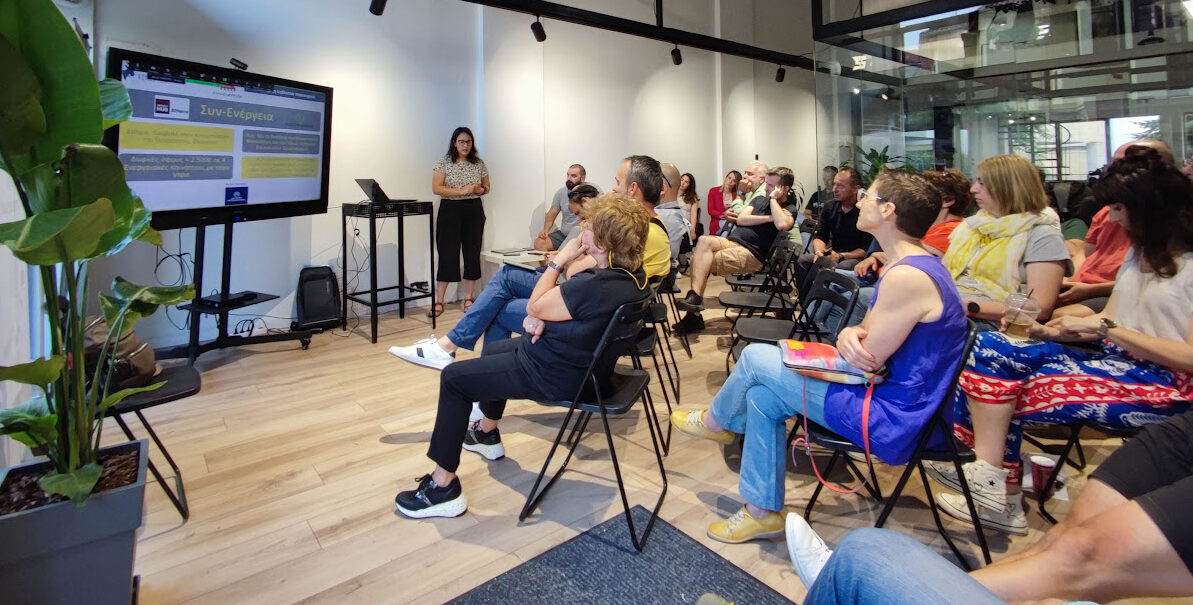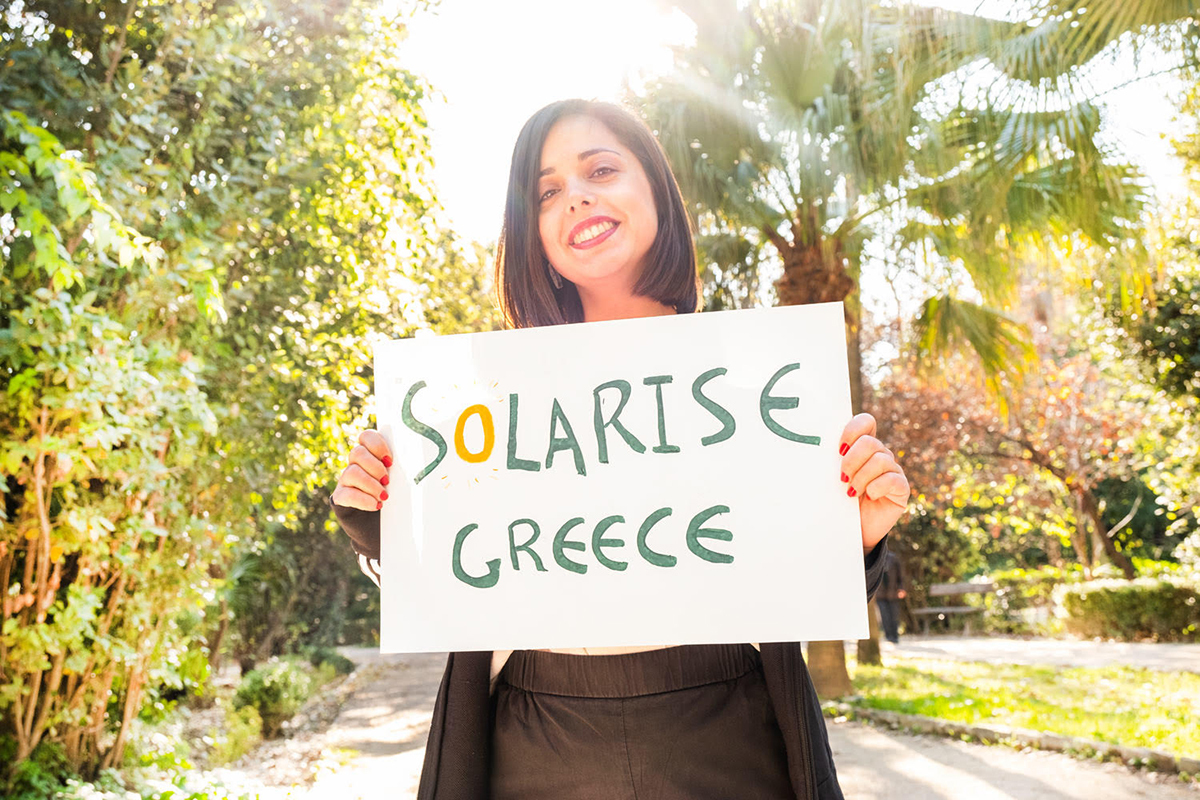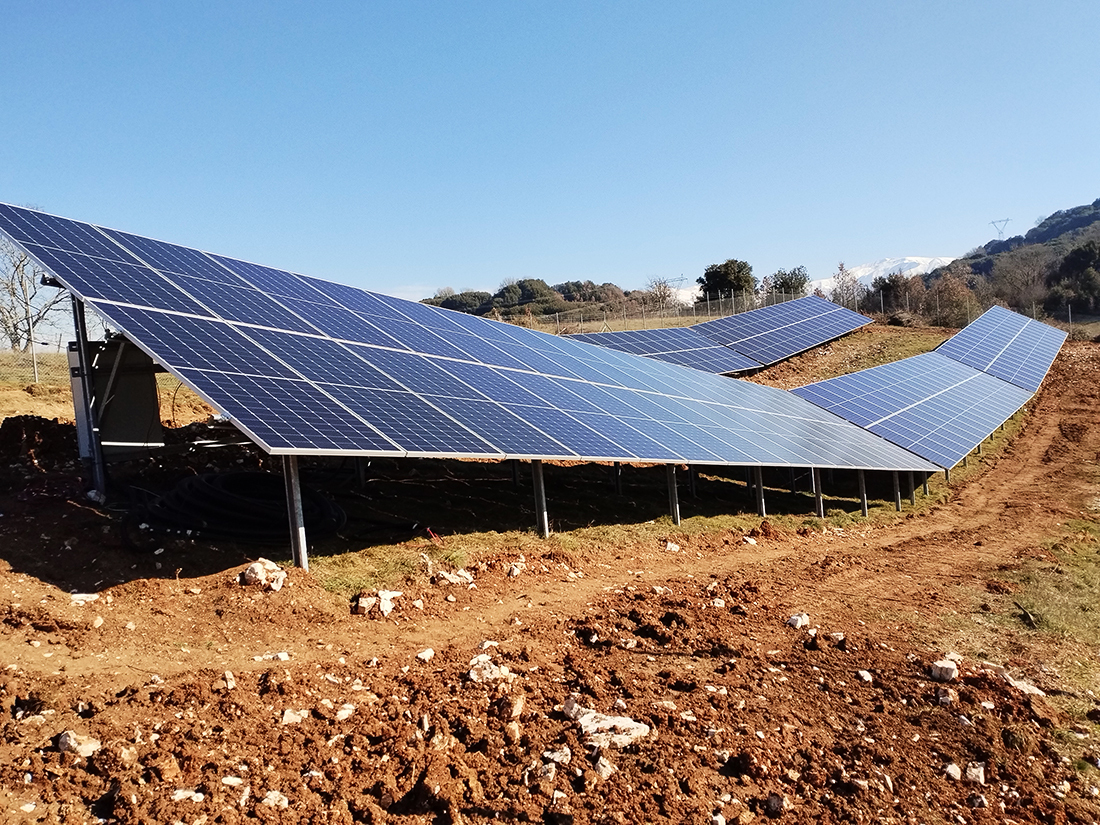Stories
April Success story: Combining negative energy bills and positive energy futures in Greece
Community energy is key to action on the climate crisis. It can empower people, boost local economies, and reinvigorate communities. Community-led initiatives play an important role in the transition towards a 100% renewable and just energy future. Success stories of community energy projects can be found all over Europe. At REScoop.eu we want to highlight these stories to further accelerate the movement towards a cleaner and democratic system.
This month, we travel to Greece to visit CommonEn and learn about their open-access, democratic and innovative energy project.
Social and technological innovation hand in hand
Founded in 2021 in the city of Ioannina, North Greece, CommonEn sets an example for grassroots innovation and community empowerment. With a membership of 55 individuals, this energy community embodies the principles of open-access, democratic governance, and local ownership. The community has already installed two 100 kWp solar parks and utilises the model of virtual net metering, meaning that the energy is self-consumed by the members, not sold to the grid.

From theory to practice: paving the way for energy democracy
CommonEn was pioneered by Electra Energy (also a REScoop.eu member) and Peer to Peer Lab, a research organisation, in the context of the SCCALE203050 Horizon project. Starting as a replication test case for the virtual net metering model, this initiative evolved to be one of the most advanced energy communities in Greece.
Despite operating two 100 kWp solar parks for more than 12 months, the supplier refused to cooperate in facilitating the metering process, thus members kept paying their bills with no incurred benefits. However, in February 2024, the situation finally improved, marked by CommonEn’s members finally starting to receive negative energy bills. This milestone underscores the successful operationalisation of virtual net metering, granting the community’s members independence from market forces and the ability to produce their own clean electricity.
This achievement marked a historic milestone for energy democracy in Greece thanks to months of advocacy efforts by CommonEn, Electra Energy, and tens of other energy communities from across the country, who decried that suppliers were not complying with the model.
The work of CommonEn exemplifies the principle of inter-cooperative solidarity. Project beneficiaries include households, one vulnerable family who will be receiving electricity for free, and a few small businesses and cooperatives.
The WOW Creative Agency cooperative emphasises the benefits of this approach.
“As a small cooperative business, participating in an energy community offers us a significant economic and competitive boost, and it also aligns with our ethical way of doing business”.

Between a rock and an oily place: choosing a third way
The city of Ioannina is located in the region of Epirus, one of the most pristine and biodiverse regions of Greece. Imminent plans for oil and gas drilling in the area, coupled with the ongoing deployment of private, large scale renewable energy projects like wind parks, have sparked a wider debate in the region about the future of energy. On the one hand, as the United Nations and the International Energy Agency warn, there is no space for new oil and gas projects anywhere in the world, if we want to tackle the climate crisis - much less so in biodiversity hotspots, such as the region of Epirus. On the other hand, the -necessary- shift to renewables must offer participation opportunities, and co-benefits to local communities. This is the vacuum that CommonEn addresses: it creates local, renewable energy projects, co-designed and co-owned by local people, thus offering a radically realistic vision about the future of energy.

Beyond self-consumption: a race to the top
The possibility for CommonEn to engage in energy sharing is not taken for granted — it was hard-won. Energy communities are legally allowed to indiscriminately participate in all activities of the energy sector. In fact, recent revisions of key European legislation, such as the Renewable Energy Directive, have broadened the scope of these potential activities even more. Energy communities across Europe should now enjoy the right of unfettered access to -amongst others- offshore wind, electric mobility, collective housing renovations, and demand-response activities. To operationalise these complex business models ‘country desks’ or fora for ongoing multi-stakeholder dialogue will be required, inviting all relevant parties (ministries, DSOs, energy regulatory authorities, energy communities) to find common and creative solutions. Only through this multi-stakeholder dialogue and advocacy did CommonEn manage to get energy sharing to work.
Energy sharing marks just the beginning of CommonEn’s journey. The community is now planning the first urban community agri-photovoltaic project in Greece, and a replication will follow in Skopje, North Macedonia. It is an urban vegetable garden that will be combined with the production of clean energy from special photovoltaic panels. Now the community seeks to engage the municipality to promote such projects jointly. Their gateway to start the conversation with municipal authorities has been the LIFE LOOP accreditation programme. Sotiris Tsoukarelis, CEO of the Ioannina Municipal Real Estate Company, and a member of CommonEn, explains their commitment.
“The Municipality of Ioannina plans to follow the LIFE LOOP accreditation programme, and proactively work with local stakeholders to promote citizen-led energy projects that can help us reach climate neutrality by 2030.”

The project’s design will follow participatory procedures with the involvement of citizens and local stakeholders. Primarily funded by the German Federal Foundation for Environment (DBU) and co-funded by the Onassis Foundation, the project is also supported by the Municipality of Ioannina and the Horizon Solar Hub project.
As communities across Europe embark on similar paths, CommonEn serves as a source of inspiration, demonstrating the transformative potential of grassroots initiatives in shaping a more sustainable and equitable energy future. Most of them have just begun their socio-technical innovation journey, showcasing a third way between the catastrophic, unstable, and costly use of fossil fuels, and the top-down imposition of large scale renewables that do not share benefits with local communities.